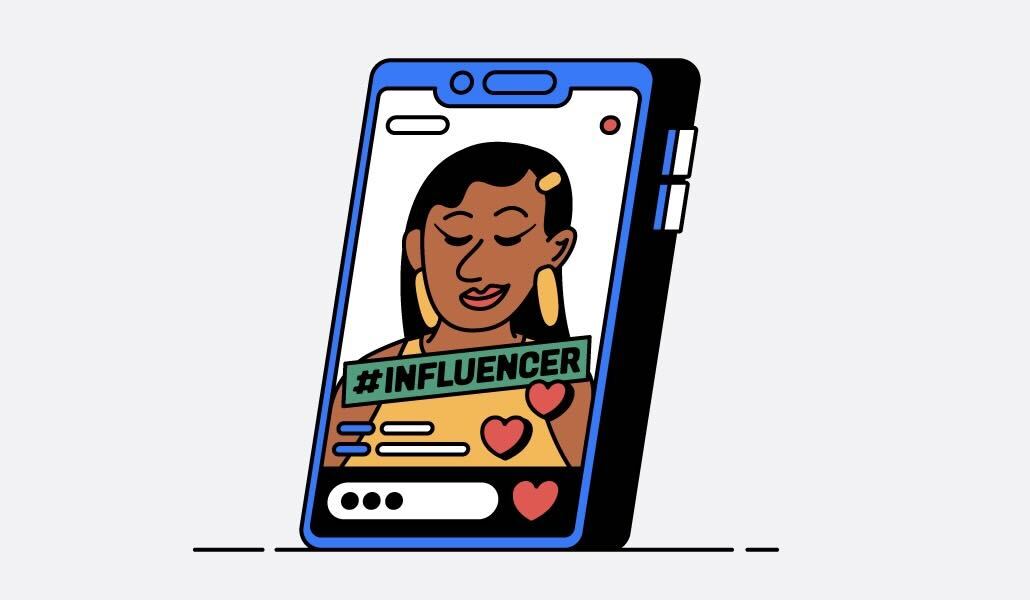Is TikTok a company’s best friend or worst enemy?

TikTok is all the rage in an unexpected place — the workplace.
The Gen-Z adored app where people can post short-videos reached one billion active global users last September and has only grown since. Some might know it only for its music and dancing content, however, the app has increasingly been used to chronicle the good, bad and ugly of workplaces, with employees posting their own content during their shifts.
That means we’re seeing behind-the-scenes at McDonalds, what time employees arrived at one Copenhagen-based agency and even Amazon warehouse workers packing boxes insanely fast.
In some cases, employers have decided to take advantage of the growing platform and formed squads of employees to produce content. For example, Dunkin’ approved brand ambassadors to share their work experiences and favorite products back in 2020. One former ambassador, Patrick Navarro, went viral last year for his under 60-second clip sharing his most interesting work experiences at the coffee chain that resulted in 1.5 million views. People even loved his recommendations on best drinks with his inside look on how it was made and directions on how to order it.
“What we see perform well on TikTok are these authentic videos and videos where people see the personality and it’s much more unfiltered,” said Betina Ask, founder of LOAD Creatives, a company who had a TikTok go viral mid-September that showed what time everyone arrived to the office. “It has to be much more relatable. I think it’s acknowledging what performs well on TikTok and playing by their rules.”
It’s risky business, but it can pay off
Similar to Dunkin’, Starbucks welcomes employees to provide an inside look via TikTok posts. Kayli Cernan, a Starbucks barista who has 73,000 followers on the app, dedicates her content solely to Starbucks. She doesn’t hold back on even the worst parts – she posts about 6 a.m. mornings where mistakes are made and how she goes home with sticky arms. When a TikToker commented and asked if she was fired for posting these unvarnished TikTok dispatches from the Starbucks trenches, Cernan responded that she has actually recently been promoted.
“If you work at Starbucks, you know what all the best drinks are and what everyone is ordering,” said Mae Karwowski, CEO of influencer marketing agency Obviously, which works with Meta, Google, Amazon and Ulta, to name a few. “You know a lot more than I know as a customer walking in. It’s really great advertising because it’s authentic, engaging and just really interesting.”
Still, employees have been fired after posting a TikTok at work or about work. A Chick-fil-A employee said she was fired after sharing a viral video that revealed how to save money at the chain when ordering a mango passion tea. A Domino’s employee also posted that he was fired for his videos, which were mostly of him preparing and boxing pizzas, because they were “apparently against company policy.” And one user posted on her TikTok account about how she got a new job in the tech industry that raised her income from $70,000 to $90,000 and other videos about how she got the job. Soon thereafter she shared, on TikTok of course, that she had been fired from her new job for her posts.
“There are brands that are like ‘hey, we’re afraid of this’ and they might shut everything down because it’s an HR quagmire for them,” said Karwowski. “I’ve seen a lot of brands do that, but I don’t think it’s the smartest, savviest thing to do.”
Across the board, companies have rushed to update their social media policies to include caveats about TikTok and how it should be used in the workplace. A new social media policy might include TikTok do’s and don’ts, and possible repercussions or benefits if a post goes viral, said Karwowski. If that policy is still being created, a company might ask their employees to temporarily not post TikToks until the proper guidelines have been set.
“You have a lot of corporate companies who have been kind of struggling with social media and how it can [suddenly] amplify their employees’ voices in unpredictable ways,” said Karwowski. “You want to eliminate as much of the unpredictable-ness as you can from a company’s corporate communication strategy.”
At the same time, companies are beginning to understand how powerful a message is when it comes from an employee who willingly wants to share about their job, instead of sponsored content, for example.
Indeed, the authentic, natural, behind-the-scenes look can’t really be recreated any other way. A recent study from Talker Research found that of 2,000 U.S. adults polled, 57% said short-form videos feel “more personal to them.”
Rachael Samuels, senior social media manager at social media management company Sprout Social, says one key to TikTok is relevance, since trends move through the app so quickly. “When employees take an active role in a company’s storytelling, they can reach a significantly larger audience than their employer’s follower base,” said Samuels.
And Karwowski said that because not many brands have their own TikTok accounts themselves, it can be helpful when employees create content on their own. One study found that content shared by employees receives 561% more reach than content shared by brands.
“I think a lot of brands and companies are not taking TikTok as seriously as they probably should be at this point,” said Ask.
How Chipotle has taken advantage of TikTok
Chipotle is one company who has taken advantage of the platform, but in a careful manner. Instead of creating a team of employees to post, they focus directly on their branded TikTok account, which has nearly 2 million followers.
Chipotle’s TikTok strategy is to focus on content that could land on the “For You Page” and is entertaining, engaging and usually shot on an iPhone. They’re not as laissez-faire as other companies might be – they include special hashtags around marketing campaigns and create scripts. Employees are aware of the company’s social media policy and Chipotle prefers that an employee pitches them an idea for a TikTok. If an employee does violate the policy, they’re asked to take it down.
For example, Jack Early, an employee, went viral on TikTik for a Chipotle hack (asking a Chipotle worker to put the cheese on the bottom of the bowl so it melts) from his personal account last year. Chipotle then decided to partner with him and they still work together.
“He had such a great perspective from the crew member side and he was getting great engagement on the platform, so we built a program with him,” said Candice Beck, director of social, influencer, and Web3 at Chipotle.
Early has a separate agreement that allows him to create content for the brand and they collaborate every month for new ideas and work through the concepts together. With a more hands-on approach, Chipotle can ensure every video follows operational protocols and the recipes they want.
“I think there’s an opportunity to build out the program that we’ve built with Jack in a bigger way and to continually [and] transparently show how our teams are prepping ingredients in our restaurants every day,” said Beck.
A viral TikTok from a global marketing agency
At LOAD Creatives, a creative marketing agency in Copenhagen, they encourage their employees to film TikToks whenever they want at work.
“We give our employees complete freedom to post what they want, whenever they want,” said LOAD’s Ask, who added they trust their employees on their opinion of what to post and she would only be concerned if someone posted something “super outrageous.”
And it was a relatively simple concept that clicked virally for the agency — a video by their social media team that would film what time everyone gets to work, but didn’t tell them what day it would happen, which ensured that the authenticity would still be there. The simple video received over 2 million views. It shared the person’s name, position, what time they arrived, and a short clip of them walking through the door.
“When we discussed it, we said we wanted to show ourselves a lot more and create a behind-the-scenes profile,” said Ask. “We knew the video was coming, but we didn’t know when. It totally took us by surprise that it went so viral, but it is quite authentic and personal and we didn’t prepare for it with our outfits or reactions. People see that authenticity and it might make it more relatable.”


